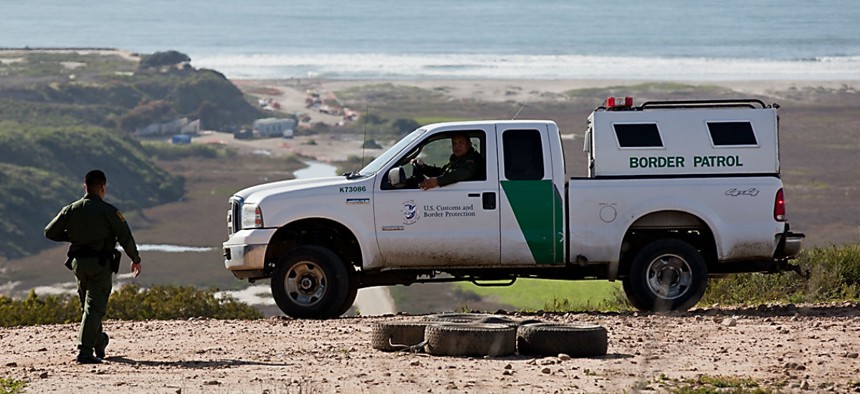
CBP is one of the agencies that has had a difficult time hiring efficiently. Josh Denmark / U.S. Customs and Border Protection file photo
Homeland Security Still Slow to Fill Law Enforcement Jobs, Watchdog Finds
ICE, Secret Service and CBP struggle with stretched work force and weak tools to track job applicants.
At a time of rising domestic threats, the Homeland Security Department has made visible but insufficient progress in hiring law enforcement professionals, according to a recent inspector general’s report.
Congress has been pressuring the department for months to take advantage of a 2014 funding infusion to expand the staffs of the Secret Service, Customs and Border Protection, and Immigration and Customs Enforcement.
And though those three agencies—DHS’ largest focused on law enforcement, with 70,000 employees—filled 85 percent to 90 percent of vacancies from 2011 to 2015, “they continue to have significant delays in hiring,” in part due to the need for background checks, the report said.
“The additional steps in the hiring process for law enforcement applicants contribute to the length of time it takes to hire law enforcement officers, but the components also do not have the staff or comprehensive automated systems needed to hire personnel as efficiently as possible,” auditors found.
The Secret Service, for example, has delayed onboarding because staff shortages have prevented completion of polygraphing examinations and background checks, the report said. “Officials explained it is difficult for these special agents to complete these collateral duties because their primary investigative and protective functions take precedence.”
The clearance process in fiscal 2015 took on average of 200 days for uniformed officers, and will be longer in this election year, the report said. All of DHS has undergone cuts in human resources funding and money for new applicant-tracking software.
The inspector general’s office recommended that the directors of ICE and the Secret Service prioritize and dedicate full-time human resources, investigative, or polygraph personnel as needed to help process law enforcement applicants. The managers also should establish a new automated method to track applicants and require new applicants to apply using the Electronic Questionnaires for Investigative Processing system.
In addition, the IG recommended, the DHS Chief Human Capital Officer, the commissioner of CBP, and the directors of ICE and the Secret Service should establish performance measures to accurately determine the long-term effect of their process improvements, along with setting timeframes for hiring that account for all steps.
The DHS component managers generally agreed.







